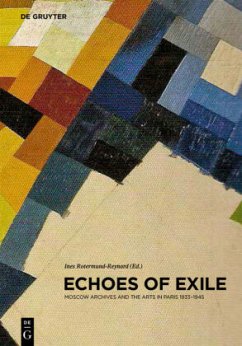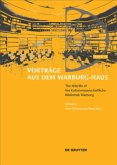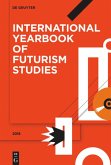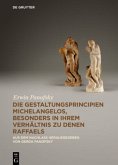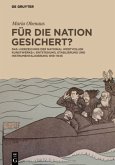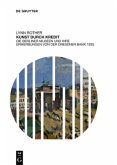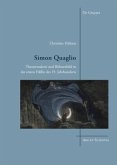Thousands of people were driven into exile by Germany's National Socialist regime from 1933 onward. For many German-speaking artists and writers Paris became a temporary capital. The archives of these exiles became "displaced objects" - scattered, stolen, confiscated, and often destroyed, but also frequently preserved. This book assesses previously unknown source material stored at the Moscow State Military Archive (RVGA) since the end of the war, and offers new insights into the activities of German-speaking exiles in the 1930s in Paris and Europe. Against the backdrop of current debates surrounding displaced cultural goods and their restitution, this work seeks to facilitate a transnational, interdisciplinary scientific dialogue.
Ab 1933 wurden Tausende von Menschen vom nationalsozialistischen Regime ins Exil getrieben. Für viele deutschsprachige Künstler und Schriftsteller wurde Paris vorübergehend zur Hauptstadt. Die Archive dieser Exilanten wurden zu "displaced objects", verstreut, geraubt, verschleppt, oft zerstört, aber auch häufig bewahrt. Im Zentrum des Buches steht die Auswertung unbekannten Quellenmaterials, das seit Kriegsende im Moskauer Sonderarchiv/RGVA lagert und das neue Einblicke in die Aktivitäten der deutschsprachigen Emigration der dreißiger Jahre in Paris und Europa erlaubt. Im Rahmen der aktuellen Debatte um deplatzierte Kulturgüter und Restitution versucht der Band damit auch einen transnationalen, interdisziplinären Wissenschaftsdialog zu eröffnen.
Hinweis: Dieser Artikel kann nur an eine deutsche Lieferadresse ausgeliefert werden.
Ab 1933 wurden Tausende von Menschen vom nationalsozialistischen Regime ins Exil getrieben. Für viele deutschsprachige Künstler und Schriftsteller wurde Paris vorübergehend zur Hauptstadt. Die Archive dieser Exilanten wurden zu "displaced objects", verstreut, geraubt, verschleppt, oft zerstört, aber auch häufig bewahrt. Im Zentrum des Buches steht die Auswertung unbekannten Quellenmaterials, das seit Kriegsende im Moskauer Sonderarchiv/RGVA lagert und das neue Einblicke in die Aktivitäten der deutschsprachigen Emigration der dreißiger Jahre in Paris und Europa erlaubt. Im Rahmen der aktuellen Debatte um deplatzierte Kulturgüter und Restitution versucht der Band damit auch einen transnationalen, interdisziplinären Wissenschaftsdialog zu eröffnen.
Hinweis: Dieser Artikel kann nur an eine deutsche Lieferadresse ausgeliefert werden.

